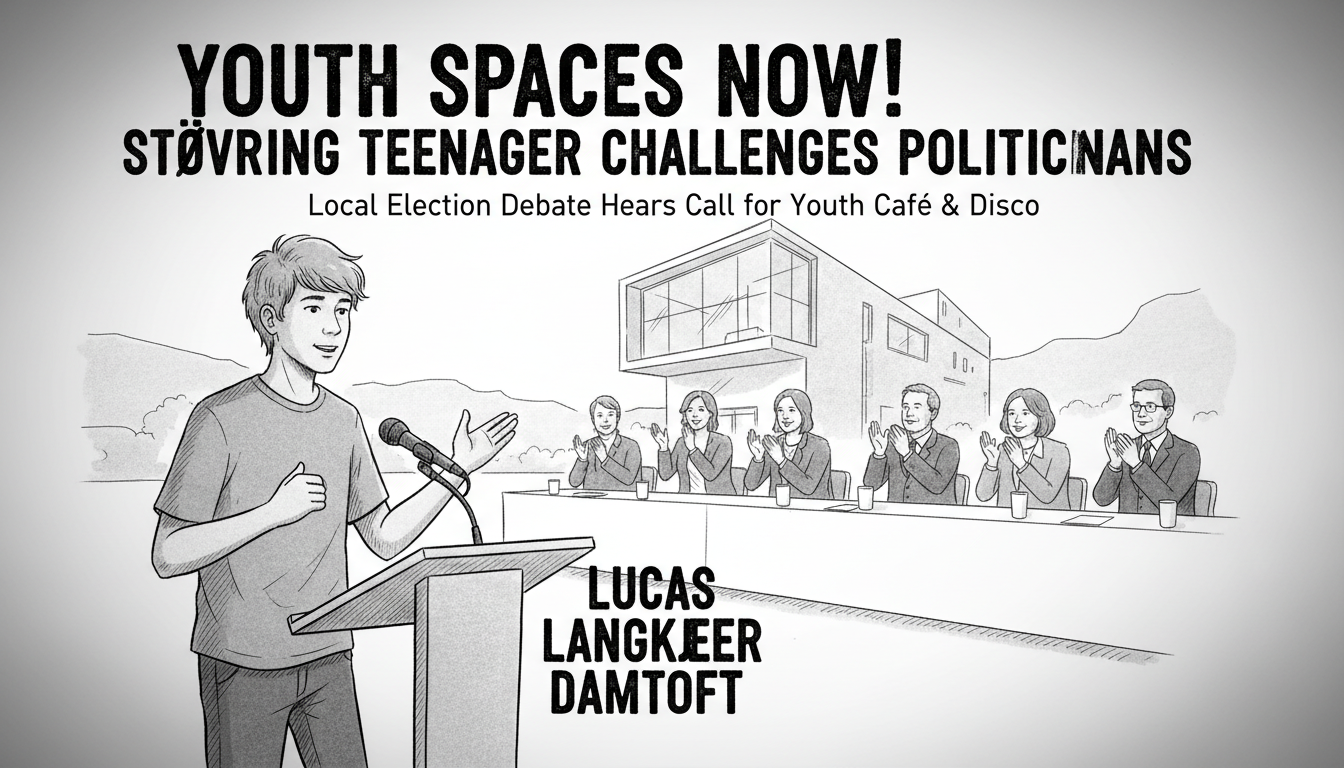A 14-year-old student challenged local politicians during a unique election forum in Denmark this week. Lucas Langkjær Damtoft addressed a reverse debate where citizens presented their key issues to candidates. The eighth-grader from Karensmindeskolen delivered a clear message about youth exclusion in community planning.
Lucas serves as student council president in Rebild Municipality. He argued that young people need dedicated social spaces. His proposal called for a youth café and soft drink disco in Støvring. These venues would provide safe gathering places for teenagers after school hours.
"Young people under 18 need somewhere to hang out that isn't too childish," Lucas explained. "Right now teenagers sit around kindergartens and schools in the evenings. We need a proper place."
The young advocate admitted to nerves before his speech. He addressed a packed room of local politicians. Their response exceeded his expectations. Lucas noted they seemed receptive to his proposal. He believes they may soon take action.
Politicians praised his courage during comment sessions. They described him as brave for speaking up. Several suggested he might appear on election posters during future municipal campaigns. Lucas confirmed his interest in continued political engagement.
Social Democrat candidate Steen Aarup Thomsen endorsed the concept. He recalled his own positive experiences with youth clubs. Thomsen hopes to recreate similar opportunities in Støvring.
This incident highlights growing youth participation in Nordic politics. Danish municipalities increasingly recognize young citizens' perspectives. Reverse debates represent innovative approaches to community engagement. They flip traditional power dynamics during election periods.
Denmark's youth council system gives students formal representation. These structures exist in most municipalities. They provide platforms for young voices in local decision-making. Still, teenagers often feel excluded from concrete policy discussions.
The youth space shortage affects many Danish towns. Similar debates occur across Scandinavia. Nordic countries generally prioritize youth welfare. Yet specific facilities for teenagers remain inconsistent.
Lucas's intervention demonstrates changing political participation patterns. Young Scandinavians increasingly demand direct involvement. They challenge traditional top-down approaches to community planning. This trend appears across Nordic regions with high digital literacy and political awareness.
Municipal elections often focus on senior services and infrastructure. Youth facilities frequently receive lower priority. Lucas's speech highlights this imbalance. His practical solution addresses a genuine community need.
The political response suggests possible policy changes. Rebild Municipality may now consider dedicated youth spaces. Other Danish towns could follow this example. The case illustrates how individual advocacy can influence local agendas.
What makes this story remarkable isn't just a teenager speaking up. It's the system creating space for that voice. Denmark's political culture allows such interventions. The question remains whether words will translate into concrete action.

